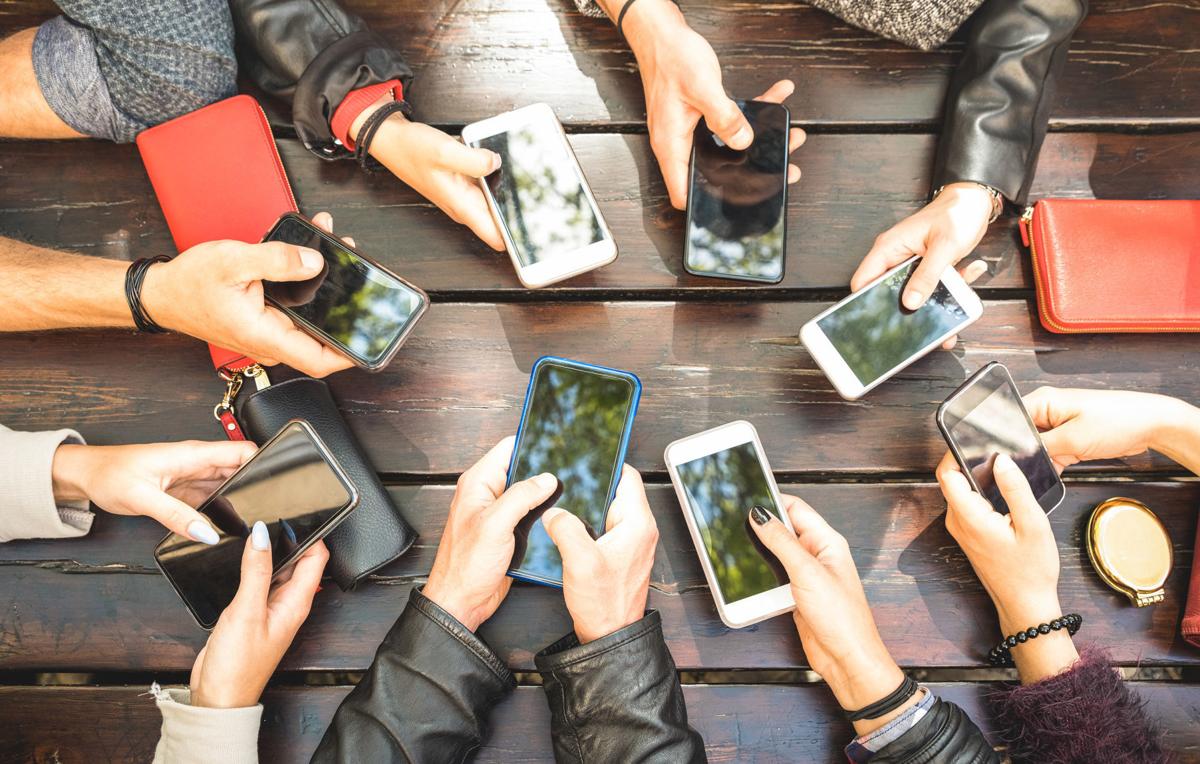Several researchers at the University of Arizona are studying the effects smartphones have on personal relationships.
“This is really a big critical period of self-examination in terms of how we’re interacting with our phones and how we want to interact with our phones and what’s happening to us by virtue of our phones,” said David Sbarra, a UA psychology professor, who directs the Laboratory for Social Connectiveness and Health.
Sbarra has been studying the interactions of close relationships and health for the past 15 years. Over time, he said he became increasingly interested in the role of smartphones in relationships.
“And it’s not just our phones, it’s sort of like our fully networked existence. So we became interested in conflict in relationships over technology use and the way in which that was giving rise to relationship difficulties.”
Sbarra and colleagues at Wayne State University recently did a review of research on “technoference” that will soon publish in the journal Perspectives on Psychological Science. According to the review article, technoference is any way smartphone use may interfere with or intrude into daily social interactions. Sbarra said the field of study has really taken off just in the last five years.
The article reviewed research that has already been done, set out a research agenda for further studies and suggested a framework for why humans are so drawn to their phones. Sbarra proposed that evolutionary traits people developed to bond with people around them could be the reason social media and texting are so compelling.
“To build social bonds to ensure for humans’ evolutionary adaptiveness and fitness we had developed a psychology that made us very tuned in to other people,” Sbarra said. “And the idea is that these adaptations or behaviors that really are designed for close kin networks and really intimate relationships are being cued all of the time by social media.”
That’s not necessarily a problem, Sbarra said, but it can be if it causes conflict in relationships or distracts people so much they’re no longer in the moment and responding to their partners. However, that depends more on individual people.
“The problems that the phone presents in relationships are not new problems, they’re just amplifying these kinds of things. ... Someone could be distracted when their partner is trying to tell him or her something, but now you have a million different ways, you have all the bings and the buzzes,” Sbarra said.
Smartphone dependency
Matthew Lapierre, an assistant professor of communication at the UA, has been working to understand what it is about smartphones that can affect a relationship, specifically looking at smartphone dependency, since 2015.
“I’ve done three studies on this and in each study it’s smartphone dependency that seems to be the driving factor related to ... romantic relationships,” Lapierre said.
To Lapierre, dependency is not defined by a certain number of hours a person spends on their phone, but is based on if a person is so reliant on their phone that it affects their daily life. In one study that is currently under review for publication, he surveyed smartphone users to find the associations between different kinds of smartphone use, like texting and social media, smartphone dependency and outcomes like relationship satisfaction and affectionate communication between people.
The study found that smartphone dependency has a negative effect on affectionate communication and satisfaction in a relationship. The results also showed that peer-to-peer communication like texting had a positive effect on affectionate communication.
“In no case did we find a negative relationship between my smartphone use and how much I communicate with my partner, so this idea of technoference, that the general use of my phone in time is somehow doing something, doesn’t seem to be the case,” Lapierre said. “I look at this study as pretty solid preliminary evidence that it’s not that (the smartphone) is interfering, it’s my attachment, my reliance on this device.”
In the future, Lapierre said he would like to study what predicts smartphone use, to fill in another piece of the smartphone dependence puzzle. A big part of further research, he said, is taking into account how quickly phones and phone use changes.
“We haven’t really come to grips with how different smartphones are,” Lapierre said. “A lot of people will look at this and say we know this because we’ve studied cellphones, we’ve looked at cellphones and how they affect relationships and we didn’t find this. And I don’t think they understand the qualitative difference … cellphones are only meant for person-to-person communication.”
Mindfulness matters
While Lapierre said the topic certainly needs to be studied further, he said there’s also no need to panic about smartphone dependence. Just be mindful of how much you use your phone.
“For the size of the effects we’re measuring, they’re not huge effects. I think they’re large enough to be concerned (about), but they’re not dire,” Lapierre said. “The same thing happens whenever we introduce a new technology. I tell my students this all the time, we used to feel this way about the telephone itself, that the telephone was uprooting moral fiber and destroying everything.”
Sbarra agreed, and said he’s not advocating for a return to a time without smartphones. He suggested being intentional about when and how you use your phone, especially around friends and relatives.
“We’re not saying they are a problem, we’re not saying they’re not a problem. They’re not going away … our technology is only going to become more immersive, not less, but this is the moment we’re in and this is what we need to figure out,” Sbarra said.





